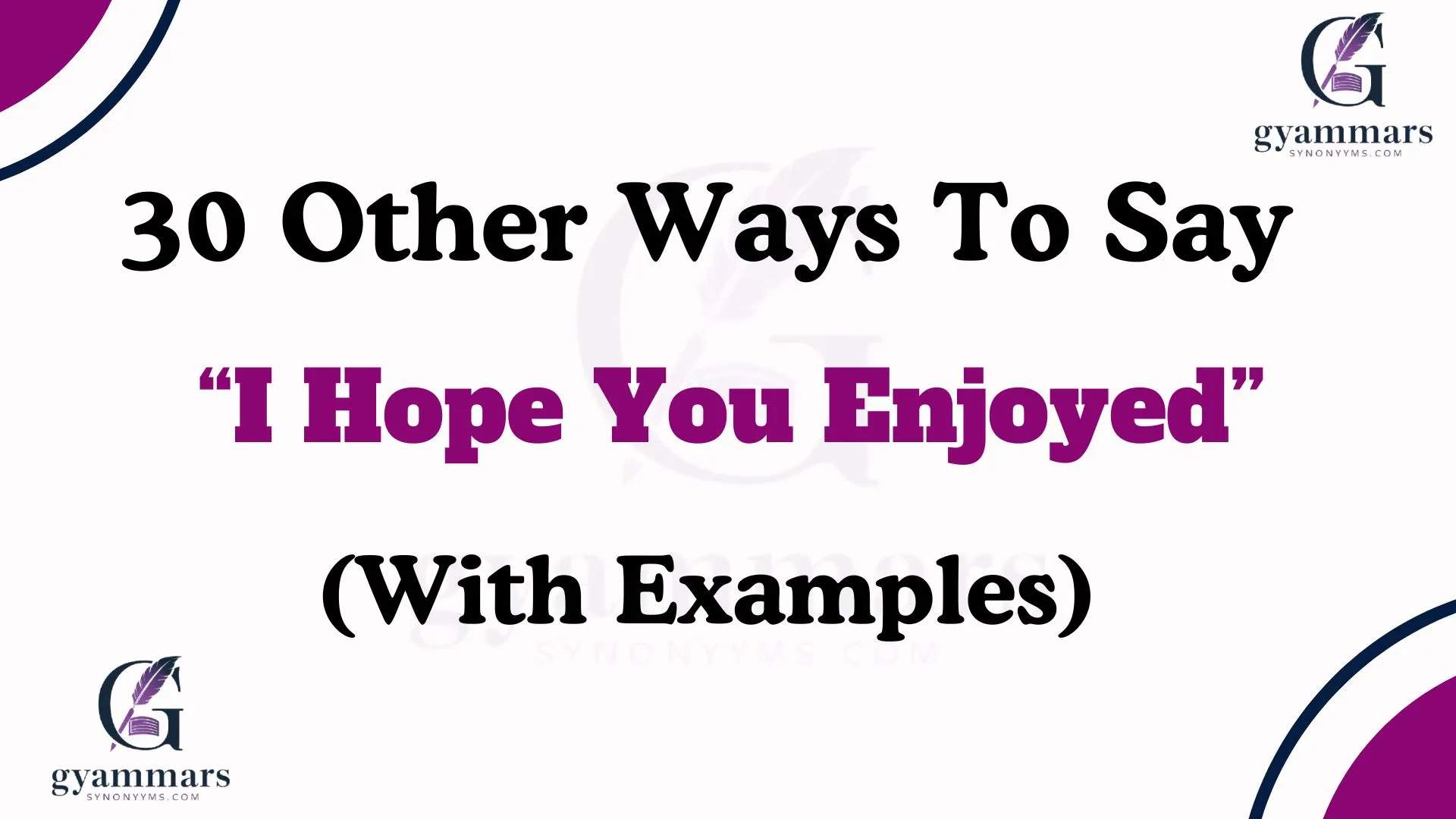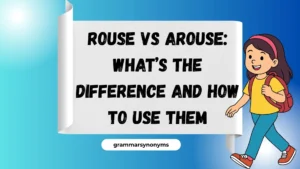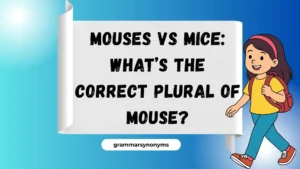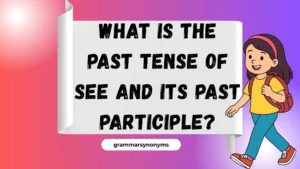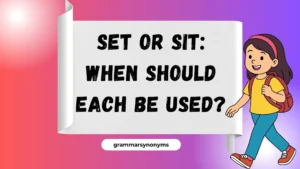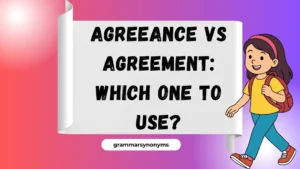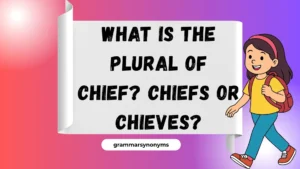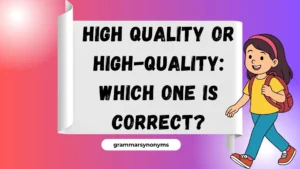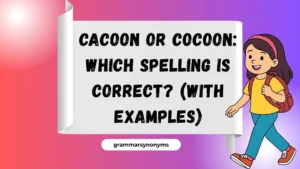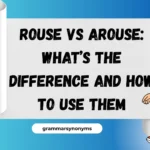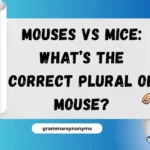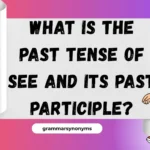Finding the right words to express warmth, care, and appreciation can make a message more genuine and heartfelt. Whether you’re writing an email, leaving feedback, or sharing a kind note, saying “I hope you enjoyed” might sometimes feel too standard or overused.
This article offers 30 thoughtful alternatives that can add variety and sincerity to your messages. You’ll also find definitions, usage scenarios, tones, and additional notes to help you choose the best phrase for your situation.
What Does “I Hope You Enjoyed” Mean?
“I hope you enjoyed” is a courteous and warm expression used to convey good wishes after someone has experienced something, such as a meal, an event, or a piece of content. It reflects consideration and a desire for the recipient’s happiness.
For example:
- “I hope you enjoyed the concert last night!”
- “I hope you enjoyed the book I recommended.”
Is It Professional/Polite to Say “I Hope You Enjoyed”?
Yes, “I hope you enjoyed” is generally polite and professional. It works well in formal and informal settings. However, in business or customer service communications, it might be more engaging to personalize the phrase.
For instance, instead of:
“I hope you enjoyed our service.”
You could say:
“I trust our service met your expectations.” (More formal)
“Glad to hear you had a great experience!” (More engaging)
When to Use It Professionally
- Emailing a client after an event
- Thanking customers for a purchase
- Following up on a service or experience
Pros and Cons of Saying “I Hope You Enjoyed”
Pros
- Polite and friendly – Shows warmth and consideration.
- Universally understood – Works in various settings.
- Flexible – Can be used for events, services, or content.
Cons
- Can sound generic – Overused in customer service and emails.
- Lacks personalization – May not feel as heartfelt as a customized message.
- Might not fit all situations – Some contexts require a more formal or specific phrase.
List of 30 Alternatives to “I Hope You Enjoyed”
- I trust you had a wonderful time.
- I hope this brought you joy.
- I’m glad you had a great experience.
- I hope it was delightful for you.
- I trust it was to your liking.
- I sincerely hope this was enjoyable.
- I hope this was everything you expected.
- I trust you found it enjoyable.
- I hope you had as much fun as I did.
- I hope you relished the experience.
- I hope this made your day better.
- I trust this was worth your time.
- I hope this brightened your day.
- I hope it exceeded your expectations.
- I hope this brought a smile to your face.
- I trust this was a pleasant experience.
- I hope this was rewarding for you.
- I hope you found it fulfilling.
- I trust this was an enriching experience.
- I hope it lived up to your expectations.
- I trust you found it worthwhile.
- I hope this left a positive impression.
- I hope this resonated with you.
- I trust this was meaningful to you.
- I hope this made a difference for you.
- I hope this was a moment to remember.
- I trust this left you with good memories.
- I hope you got something valuable from this.
- I hope this added value to your day.
- I trust this was an experience to cherish.
1. I trust you had a wonderful time.
Definition: A polite way to express confidence that someone had a pleasant experience.
Explanation: This phrase adds a touch of trust and optimism, making it more engaging than “I hope you enjoyed.”
Example:
- “I trust you had a wonderful time at the event!”
Best Use: Formal emails, business events, polite messages.
Tone: Professional, warm, and respectful.
Additional Notes: Works well in corporate settings and client interactions.
2. I hope this brought you joy.
Definition: Expresses a wish that the experience created happiness.
Explanation: More emotional and heartfelt, great for personal messages.
Example:
- “I hope this brought you joy and made your day brighter!”
Best Use: Personal conversations, friendly emails, uplifting messages.
Tone: Warm, caring, and sentimental.
Additional Notes: Best for casual and personal interactions.
3. I’m glad you had a great experience.
Definition: Expresses happiness about someone’s enjoyment.
Explanation: This phrase acknowledges the person’s experience rather than just hoping for it.
Example:
- “I’m glad you had a great experience at our restaurant!”
Best Use: Customer service, professional emails, review responses.
Tone: Friendly and appreciative.
Additional Notes: Adds genuine warmth to feedback or service-related messages.
4. I hope it was delightful for you.
Definition: Expresses a wish that the experience was pleasant and enjoyable.
Explanation: The word “delightful” adds a charming and elegant tone, making it warmer than a generic phrase.
Example:
- “I hope it was delightful for you and exceeded your expectations!”
Best Use: Formal emails, customer feedback, friendly conversations.
Tone: Warm, slightly formal, and refined.
Additional Notes: Ideal for hospitality, dining experiences, and special occasions.
5. I trust it was to your liking.
Definition: Implies confidence that the experience matched the person’s preferences or expectations.
Explanation: This phrase sounds professional and is perfect for business and formal settings.
Example:
- “I trust it was to your liking and met your expectations.”
Best Use: Business meetings, formal letters, customer service.
Tone: Formal, polite, and respectful.
Additional Notes: Best for work-related or high-end service interactions.
6. I sincerely hope this was enjoyable.
Definition: Adds an element of genuine care and concern to the phrase.
Explanation: The word “sincerely” makes it sound more heartfelt and personal.
Example:
- “I sincerely hope this was enjoyable and made your evening special.”
Best Use: Personal messages, appreciation emails, heartfelt interactions.
Tone: Warm, caring, and genuine.
Additional Notes: Works well in both personal and professional settings.
7. I hope this was everything you expected.
Definition: Expresses a desire that the experience met or exceeded expectations.
Explanation: This phrase acknowledges that the person had prior expectations and hopes they were met.
Example:
- “I hope this was everything you expected and more!”
Best Use: Event planning, customer service, gift-giving.
Tone: Positive and reassuring.
Additional Notes: Good for reviews, customer interactions, and thoughtful messages.
8. I trust you found it enjoyable.
Definition: Implies confidence that the recipient had a positive experience.
Explanation: A polite and professional way to express hope that something was enjoyable.
Example:
- “I trust you found it enjoyable and worth your time.”
Best Use: Business communications, professional emails, review follow-ups.
Tone: Formal and respectful.
Additional Notes: Ideal for corporate or service-oriented messages.
9. I hope you had as much fun as I did.
Definition: Expresses a shared sense of enjoyment between two people.
Explanation: This phrase makes the message more engaging and personal.
Example:
- “I hope you had as much fun as I did at the party last night!”
Best Use: Social gatherings, friendly emails, casual conversations.
Tone: Friendly and cheerful.
Additional Notes: Works best in informal or friendly situations.
10. I hope you relished the experience.
Definition: Expresses hope that the recipient deeply enjoyed the experience.
Explanation: “Relish” suggests a strong sense of appreciation or satisfaction.
Example:
- “I hope you relished the experience as much as I did!”
Best Use: Gourmet dining, special occasions, personal messages.
Tone: Elegant and refined.
Additional Notes: Best used in luxury settings or personal interactions.
11. I hope this made your day better.
Definition: Expresses a desire to brighten someone’s day.
Explanation: This phrase makes the message empathetic and kind.
Example:
- “I hope this made your day better and put a smile on your face!”
Best Use: Uplifting messages, kind gestures, social media interactions.
Tone: Warm, positive, and caring.
Additional Notes: Great for encouragement and thoughtful communication.
12. I trust this was worth your time.
Definition: A polite way to acknowledge the recipient’s time and effort.
Explanation: This phrase works well in professional and customer service settings.
Example:
- “I trust this was worth your time and left you with valuable insights.”
Best Use: Business emails, meetings, educational content.
Tone: Professional and respectful.
Additional Notes: Ideal for workplace and formal discussions.
13. I hope this brightened your day.
Definition: Expresses hope that the experience brought positivity and joy.
Explanation: Perfect for cheerful and uplifting messages.
Example:
- “I hope this brightened your day and made you smile!”
Best Use: Friendly messages, social media captions, emails to loved ones.
Tone: Warm, encouraging, and joyful.
Additional Notes: Works great for kind and motivational messages.
14. I hope it exceeded your expectations.
Definition: Expresses confidence that the experience was even better than expected.
Explanation: Shows enthusiasm and positive reinforcement.
Example:
- “I hope it exceeded your expectations and made your evening extra special!”
Best Use: Business services, luxury experiences, customer satisfaction emails.
Tone: Professional and optimistic.
Additional Notes: Ideal for high-end service industries and client interactions.
15. I hope this brought a smile to your face.
Definition: Expresses a desire to spread happiness.
Explanation: A simple yet effective way to convey warmth and care.
Example:
- “I hope this brought a smile to your face today!”
Best Use: Social media, friendly chats, personal messages.
Tone: Lighthearted and cheerful.
Additional Notes: Great for casual and encouraging communication.
16. I hope you had a great time.
Definition: Expresses a simple wish that the experience was enjoyable and fun.
Explanation: This phrase is versatile and can be used in both formal and informal settings.
Example:
- “I hope you had a great time at the wedding!”
Best Use: Social gatherings, events, vacations.
Tone: Friendly and warm.
Additional Notes: Works well in spoken and written conversations.
17. I hope it brought you joy.
Definition: Conveys a sincere wish that the experience was happy and meaningful.
Explanation: Ideal for heartfelt interactions where emotions are involved.
Example:
- “I hope it brought you joy and left you with wonderful memories.”
Best Use: Gifts, surprises, special occasions.
Tone: Warm, personal, and caring.
Additional Notes: Best used in sentimental situations.
18. I trust you found it rewarding.
Definition: Implies confidence that the recipient gained value from the experience.
Explanation: This phrase is perfect for professional settings like workshops or learning experiences.
Example:
- “I trust you found it rewarding and insightful.”
Best Use: Business meetings, training sessions, networking events.
Tone: Formal and professional.
Additional Notes: Suitable for corporate environments.
19. I hope it was a memorable experience.
Definition: Expresses hope that the event or activity was unforgettable.
Explanation: Highlights the importance of lasting impressions.
Example:
- “I hope it was a memorable experience for you and your family!”
Best Use: Special occasions, travel, celebrations.
Tone: Warm and thoughtful.
Additional Notes: Works well in event planning and hospitality.
20. I hope this added value to your day.
Definition: Expresses hope that the experience was beneficial or meaningful.
Explanation: This phrase is useful in business or educational contexts.
Example:
- “I hope this added value to your day and gave you fresh insights!”
Best Use: Business meetings, mentorship, educational content.
Tone: Professional and encouraging.
Additional Notes: Ideal for coaching, training, and customer engagement.
21. I hope you found it worthwhile.
Definition: Expresses hope that the recipient felt their time was well spent.
Explanation: This phrase is polite and professional, making it great for formal settings.
Example:
- “I hope you found it worthwhile and beneficial!”
Best Use: Work events, conferences, educational sessions.
Tone: Respectful and professional.
Additional Notes: Often used in customer service and business communication.
22. I hope it left a positive impression.
Definition: Expresses hope that the experience was impactful and meaningful.
Explanation: A thoughtful way to reflect on a shared experience.
Example:
- “I hope it left a positive impression and inspired you!”
Best Use: Events, networking, personal development.
Tone: Thoughtful and positive.
Additional Notes: Great for motivational and leadership conversations.
23. I hope you took something valuable from it.
Definition: Expresses hope that the recipient gained knowledge or insight.
Explanation: This phrase is useful for mentorship, training, or learning experiences.
Example:
- “I hope you took something valuable from it and can apply it to your journey.”
Best Use: Coaching, teaching, professional feedback.
Tone: Encouraging and professional.
Additional Notes: Perfect for educational and corporate settings.
24. I hope it was enjoyable and insightful.
Definition: Expresses hope that the experience was both fun and informative.
Explanation: Ideal for situations where learning and entertainment are combined.
Example:
- “I hope it was enjoyable and insightful for you!”
Best Use: Educational events, business meetings, lectures.
Tone: Professional and engaging.
Additional Notes: Suitable for seminars, conferences, and training.
25. I hope you found it refreshing.
Definition: Expresses hope that the experience felt uplifting or rejuvenating.
Explanation: Great for situations involving relaxation, vacations, or positive experiences.
Example:
- “I hope you found it refreshing and stress-free!”
Best Use: Travel, wellness, leisure activities.
Tone: Relaxed and soothing.
Additional Notes: Best used in hospitality and wellness settings.
26. I hope this left you inspired.
Definition: Expresses hope that the recipient felt motivated or encouraged.
Explanation: This phrase is powerful for creative or professional discussions.
Example:
- “I hope this left you inspired to pursue your goals!”
Best Use: Motivational talks, creative discussions, leadership messages.
Tone: Inspirational and uplifting.
Additional Notes: Ideal for mentors, speakers, and content creators.
27. I hope it brought you happiness.
Definition: Expresses a heartfelt wish that the experience was joyful.
Explanation: Simple yet effective in conveying warmth and care.
Example:
- “I hope it brought you happiness and good memories!”
Best Use: Personal messages, kind gestures, thoughtful notes.
Tone: Warm and emotional.
Additional Notes: Works best for friendship, relationships, and personal interactions.
28. I hope this was worth your effort.
Definition: Acknowledges the recipient’s time and dedication.
Explanation: A thoughtful way to recognize someone’s investment in an experience.
Example:
- “I hope this was worth your effort and brought great results!”
Best Use: Work projects, learning experiences, collaborations.
Tone: Appreciative and respectful.
Additional Notes: Ideal for professional and academic conversations.
29. I hope this added something special to your day.
Definition: Expresses a wish that the experience made a positive impact.
Explanation: This phrase is friendly, warm, and caring.
Example:
- “I hope this added something special to your day!”
Best Use: Thoughtful notes, casual conversations, gifts.
Tone: Warm and cheerful.
Additional Notes: Works well for kind and friendly interactions.
30. I hope this left a lasting memory.
Definition: Expresses a wish that the experience was memorable and meaningful.
Explanation: Perfect for once-in-a-lifetime moments.
Example:
- “I hope this left a lasting memory for you and your loved ones!”
Best Use: Special events, sentimental messages, travel experiences.
Tone: Thoughtful and nostalgic.
Additional Notes: Ideal for milestone events and heartfelt moments.
Conclusion
Finding the right way to express care and warmth makes any interaction more meaningful and memorable. Whether in a formal setting, casual chat, or heartfelt message, choosing the right phrase helps convey genuine appreciation and thoughtfulness.
Hope this article helps you express yourself in new, warm, and engaging ways! 😊
FAQs: 30 Other Ways to Say “I Hope You Enjoyed” (With Examples)
Here are some frequently asked questions to help you better understand how to use alternatives to “I hope you enjoyed” in different contexts.
1. Why should I use alternatives to “I hope you enjoyed”?
Using different phrases adds variety, warmth, and a personal touch to your message. It helps you sound more thoughtful and engaging rather than repetitive.
2. Can I use these alternatives in professional emails?
Yes! Some phrases, like “I trust you found it valuable” or “I hope this added value to your day”, are perfect for business and corporate settings.
3. Which alternatives work best for customer service?
For customer interactions, you can use:
- “I hope this experience was rewarding for you.”
- “I trust this met your expectations.”
- “I hope you found it helpful and enjoyable.”
These convey politeness, appreciation, and professionalism.
4. What’s the best way to express warmth and sincerity?
If you want to sound warm and caring, try:
- “I hope it brought you joy.”
- “I hope this left you inspired.”
- “I hope this was a special moment for you.”
These phrases add a personal and emotional touch.
5. Are there any alternatives that sound formal?
Yes! Formal options include:
- “I trust you found it beneficial.”
- “I hope this provided valuable insights.”
- “I hope you found it worthwhile.”
These sound professional and polished, making them ideal for business emails, conferences, and academic settings.

“Emma Brooke at Grammar Synonyms is your trusted source for mastering the art of language. Whether you’re looking for the perfect synonym, refining your grammar, or searching for that one ideal phrase, we’ve got you covered. With a wealth of tools and resources, Emma Brooke brings you creative solutions for all your writing needs, making sure your words always hit the mark. Unlock a world of language possibilities and elevate your writing with ease.”
